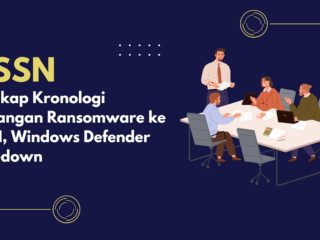The Dark Side of Smart Homes: Are You Sacrificing Your Privacy for Convenience?

Tecnoflare – In recent years, the rise of smart home technology has transformed the way we interact with our living spaces. From smart thermostats that learn our preferences to voice-activated assistants that respond to our every command, these innovations promise unparalleled convenience. However, beneath the shiny surface of smart home devices lies a more troubling reality: the potential erosion of our privacy. As we invite these technologies into our homes, we must ask ourselves whether the benefits truly outweigh the risks. This article delves into the darker aspects of smart homes, exploring the implications for our privacy, security, and overall well-being.
1. Understanding Smart Home Technology
Smart home technology encompasses a wide array of devices designed to enhance convenience and efficiency in our daily lives. These can include smart speakers, security cameras, lighting systems, and even kitchen appliances that connect to the internet and can be controlled remotely. The appeal of smart homes lies in their ability to automate routine tasks, provide real-time information, and create a more comfortable living environment. For instance, a smart thermostat can adjust the temperature based on your habits, while smart lights can be programmed to change color or intensity based on the time of day.
However, the interconnected nature of smart devices raises significant concerns about privacy and data security. Each device collects and transmits data, often to cloud servers where it can be analyzed and stored. This data can include personal information such as your daily routines, preferences, and even your location. The more devices you have in your home, the more data is being generated and shared, creating a comprehensive profile of your life that can be accessed by third parties.
Moreover, the manufacturers of these devices often have vague privacy policies that leave users in the dark about how their data is being used. Many consumers are unaware that their smart home devices may be continuously listening, recording, and transmitting information back to the company. This lack of transparency can lead to a false sense of security, as users assume that their private lives are shielded from prying eyes, when in reality, they may be sharing more than they realize.
As we delve deeper into the implications of smart home technology, it becomes evident that while these devices offer undeniable benefits, they also pose significant risks to our privacy. Understanding the extent of these risks is crucial for making informed decisions about the technologies we choose to integrate into our homes.
2. The Privacy Paradox
The concept of the “privacy paradox” refers to the discrepancy between individuals’ concerns about privacy and their actual behavior regarding their personal data. While many people express anxiety about how their information is collected and used, they often continue to adopt technologies that compromise their privacy. This contradiction is particularly evident in the realm of smart homes, where the allure of convenience often overshadows privacy concerns.
One reason for this paradox is the pervasive nature of technology in our lives. As smart devices become more integrated into our daily routines, they create a sense of dependency that can be hard to break. For instance, a smart speaker may provide instant access to information and entertainment, making it difficult for users to resist the temptation to use it, even if they are aware of potential privacy risks. This dependency can lead to a gradual erosion of privacy as users become increasingly comfortable with sharing their data.
Additionally, the marketing strategies employed by tech companies often downplay privacy concerns, focusing instead on the benefits of their products. Advertisements frequently highlight how smart home devices can simplify tasks and enhance quality of life, while the potential risks are relegated to fine print or ignored altogether. This creates an environment where consumers may feel pressured to adopt these technologies, despite their reservations.
Finally, there is a lack of education and awareness regarding data privacy issues. Many consumers do not fully understand how their data is collected, stored, and used, which can lead to complacency. Without a clear understanding of the implications of their choices, individuals may continue to prioritize convenience over privacy, perpetuating the privacy paradox in the context of smart homes.
3. Data Security Risks
As smart home devices become increasingly popular, the risks associated with data security cannot be overlooked. Each connected device serves as a potential entry point for cybercriminals, who can exploit vulnerabilities to gain access to personal information. For instance, a poorly secured smart camera could allow hackers to view live footage of your home, while a compromised smart lock could enable unauthorized entry.
One major concern is the lack of standardization in security protocols across different smart home devices. Many manufacturers prioritize convenience and functionality over robust security measures, leaving their products susceptible to attacks. In some cases, devices may ship with default passwords that users fail to change, making it easy for hackers to gain access. Additionally, outdated firmware and software can create further vulnerabilities, as manufacturers may not provide timely updates to address security flaws.
Moreover, the data collected by smart home devices can be particularly sensitive. Information about your daily routines, health, and even conversations can be stored and analyzed, creating a detailed profile that can be exploited. If this data falls into the wrong hands, it can be used for identity theft, stalking, or other malicious activities. The potential consequences of a data breach can be severe, affecting not only individuals but also families and communities.
To mitigate these risks, it is essential for consumers to take proactive measures to secure their smart home devices. This includes changing default passwords, regularly updating software, and being vigilant about the information shared with manufacturers. By prioritizing data security, users can better protect their privacy while still enjoying the benefits of smart home technology.
4. Surveillance and Control
One of the most troubling aspects of smart home technology is the potential for surveillance and control. Many smart devices, such as security cameras and smart speakers, are designed to monitor and record activities within the home. While these features can enhance security and convenience, they also raise ethical questions about privacy and consent.
Surveillance capabilities can create a sense of unease, as individuals may feel they are being watched or listened to at all times. This constant monitoring can have a chilling effect on personal behavior, as people may alter their actions based on the knowledge that they are being recorded. For instance, the presence of a smart camera may discourage open conversations or spontaneous activities, leading to a more controlled and less authentic home environment.
Furthermore, the data collected by surveillance devices can be used for purposes beyond individual convenience. Companies may sell or share this information with third parties, including advertisers and law enforcement agencies, without users’ explicit consent. This raises questions about who has access to our personal data and how it is being used. The potential for misuse of surveillance data is a significant concern, particularly in an era where privacy violations are increasingly common.
In addition to ethical concerns, the integration of surveillance technology into our homes can lead to a loss of autonomy. As smart devices become more capable of making decisions on our behalf, individuals may find themselves relinquishing control over their living spaces. This shift can create a power imbalance, where technology dictates our actions rather than empowering us to make choices. As we navigate the complexities of smart home technology, it is essential to remain vigilant about the implications of surveillance and control on our privacy and personal freedom.
5. The Role of Regulation
As the smart home industry continues to expand, the need for regulation becomes increasingly apparent. Currently, there is a patchwork of laws and guidelines governing data privacy and security, often leaving consumers vulnerable to exploitation. Without comprehensive regulations, manufacturers may prioritize profits over user privacy, leading to a culture of negligence regarding data protection.
Effective regulation could establish clear standards for data collection, storage, and sharing practices among smart home manufacturers. This would empower consumers with greater control over their personal information and ensure that companies are held accountable for privacy violations. For instance, regulations could require manufacturers to obtain explicit consent before collecting data, as well as mandate transparency regarding how user data is used and shared.
Moreover, regulatory frameworks could encourage the development of more secure smart home devices. By imposing stringent security requirements, governments can help protect consumers from cyber threats and data breaches. This could include mandates for regular software updates, robust encryption protocols, and user-friendly security features that simplify the process of securing devices.
However, achieving effective regulation in the fast-paced tech industry is not without challenges. Policymakers must balance the need for consumer protection with the desire to foster innovation and growth within the smart home market. Collaboration between industry stakeholders, government agencies, and consumer advocacy groups will be essential in creating a regulatory environment that prioritizes privacy without stifling technological advancement.
6. Making Informed Choices
Ultimately, the decision to adopt smart home technology should be informed by a thorough understanding of the potential risks and benefits. While these devices offer convenience and efficiency, they also pose significant privacy and security challenges that cannot be ignored. As consumers, we must take an active role in protecting our personal information and making choices that align with our values.
One crucial step is to educate ourselves about the specific devices we are considering for our homes. This includes researching manufacturers’ privacy policies, understanding how data is collected and used, and evaluating the security features of each device. By being informed consumers, we can make choices that prioritize our privacy while still enjoying the benefits of smart technology.
Additionally, we should advocate for greater transparency and accountability within the smart home industry. Supporting companies that prioritize user privacy and security can help drive positive change in the market. By demanding better practices and holding manufacturers accountable, we can encourage a culture of responsibility that benefits all consumers.
Finally, it is essential to remain vigilant about our privacy even after adopting smart home technology. Regularly reviewing privacy settings, updating software, and being mindful of the information we share can help protect our personal data. By taking these proactive steps, we can enjoy the conveniences of smart homes without sacrificing our privacy.
Conclusion
The allure of smart home technology is undeniable, offering a level of convenience and efficiency that can enhance our daily lives. However, as we embrace these innovations, we must also confront the darker side of smart homes: the potential erosion of our privacy. From data security risks to surveillance and control, the implications of smart home technology are profound and far-reaching. By understanding these risks and making informed choices, we can navigate the complexities of smart homes while safeguarding our personal information. Ultimately, the decision to adopt smart technology should be guided by a commitment to privacy and a recognition of the value of our personal data.
FAQ
1. What are the main privacy concerns associated with smart homes?
The main privacy concerns include data collection and sharing without user consent, surveillance capabilities that monitor personal activities, and potential vulnerabilities that can be exploited by hackers.
2. How can I secure my smart home devices?
You can secure your smart home devices by changing default passwords, regularly updating software, enabling two-factor authentication, and being cautious about the information you share with manufacturers.
3. Are all smart home devices equally secure?
No, not all smart home devices are equally secure. Security varies by manufacturer and device, so it’s essential to research the specific products you are considering for potential vulnerabilities and security features.
4. What role does regulation play in protecting consumer privacy in smart homes?
Regulation can establish clear standards for data privacy and security, holding manufacturers accountable for how they collect, store, and share user data, and encouraging the development of more secure devices. (*)







No Comments